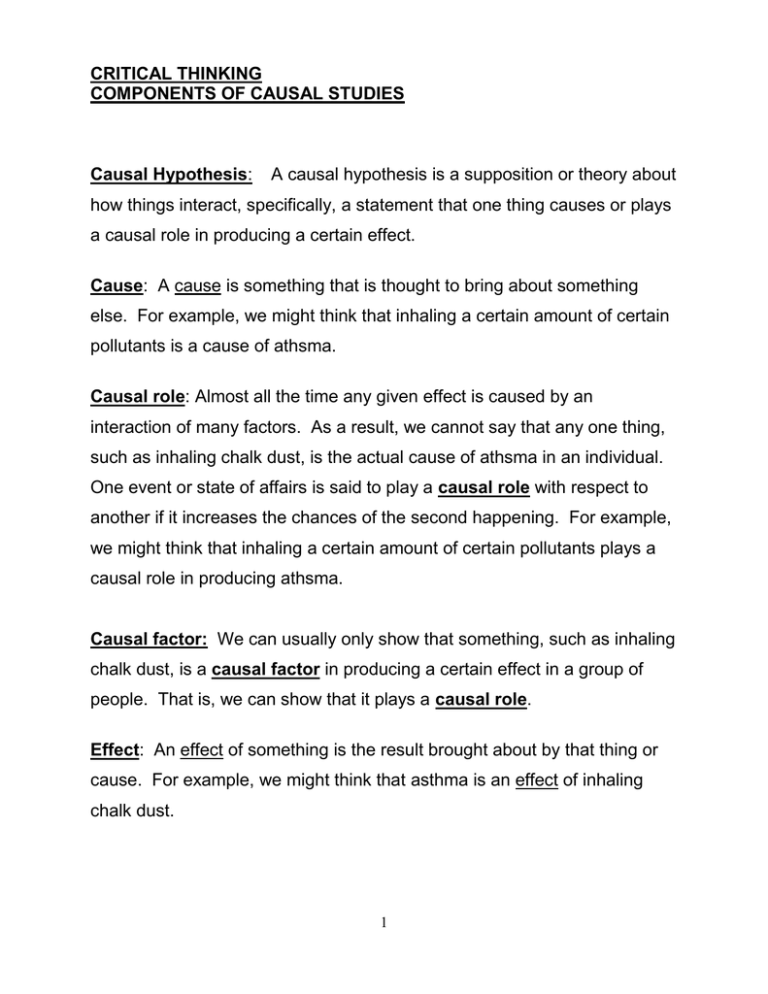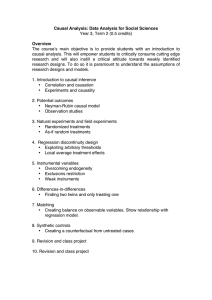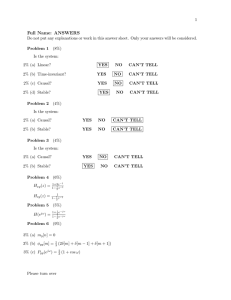CRITICAL THINKING COMPONENTS OF CAUSAL STUDIES Causal Hypothesis
advertisement

CRITICAL THINKING COMPONENTS OF CAUSAL STUDIES Causal Hypothesis: A causal hypothesis is a supposition or theory about how things interact, specifically, a statement that one thing causes or plays a causal role in producing a certain effect. Cause: A cause is something that is thought to bring about something else. For example, we might think that inhaling a certain amount of certain pollutants is a cause of athsma. Causal role: Almost all the time any given effect is caused by an interaction of many factors. As a result, we cannot say that any one thing, such as inhaling chalk dust, is the actual cause of athsma in an individual. One event or state of affairs is said to play a causal role with respect to another if it increases the chances of the second happening. For example, we might think that inhaling a certain amount of certain pollutants plays a causal role in producing athsma. Causal factor: We can usually only show that something, such as inhaling chalk dust, is a causal factor in producing a certain effect in a group of people. That is, we can show that it plays a causal role. Effect: An effect of something is the result brought about by that thing or cause. For example, we might think that asthma is an effect of inhaling chalk dust. 1



